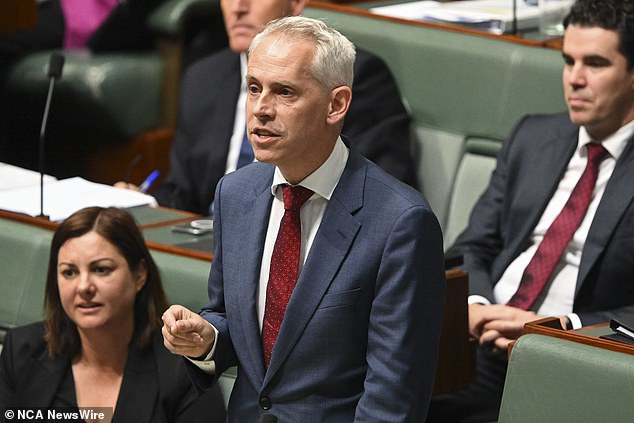Criminal Sudanese migrant who self-identifies as Aboriginal is allowed to stay in Australia
A criminal Sudanese migrant who identifies himself as an Aboriginal man has been allowed to remain in Australia.
The man, also known as RCWV, was born in Khartoum and spent the first 20 years of his life in Africa before moving to Australia on a protection visa.
The visa was revoked following a string of convictions for knife crime, car theft and serious driving offenses that left one victim with life-threatening injuries.
RCWV was also found guilty of breaching apprehended violence orders, stalking and assaulting an Aboriginal woman. The Australian reported.
His protection visa was subsequently revoked, meaning RCWV faced deportation.
The Administrative Appeals Tribunal has overturned a decision to revoke his visa under Direction 99, an edict issued by Immigration Minister Andrew Giles in January 2023.
A Sudanese man who identifies himself as Aboriginal and has a long criminal history is allowed to remain in Australia under Direction 99 (photo, Villawood Detention Centre)
The board is asking the tribunal to consider whether a non-citizen who commits a crime spent his formative years in Australia.
In his submission to the tribunal, RCWV wrote that during his fifteen years in Australia he had become a beloved member of his local community.
He said he had a 10-year partnership with an Aboriginal woman, the same woman he was found guilty of assaulting, and that they had three children together.
“I identify as Aboriginal and consider Australia my country,” he wrote in his entry.
“I have been accepted by the indigenous people of this land through their customs and tradition during a smoking ceremony.
“I also learned a lot about Aboriginal culture, learned to paint Aboriginal art and have also played digeridoo (sic) in the past.”
The AAT ultimately ruled that the man could remain in Australia.
It comes as a man raped his 14-year-old stepdaughter while her mother was in hospital giving birth to her sibling, and had his visa reinstated under Direction 99.
The 37-year-old New Zealand man known as CHCY was found guilty in 2022 of nine charges of ‘indecent treatment’, including raping the teenager.

Direction 99, issued by Mr Giles (pictured) in January 2023, asks the AAT to make ‘ties with Australia’ a primary concern in visa determinations
After raping his stepdaughter, the man entered her room twice, climbed into her bed and rubbed her body.
At his sentencing, the judge told CHCY he would lose his Australian visa and “possibly be deported.”
As the perpetrator had first moved to Australia when he was 17 years old, AAT ruled that the New Zealand man had spent his formative years abroad.
It comes after a man released from immigration detention following a successful appeal to the AAT was alleged to have murdered a man just weeks later.
Emmanuel Saki, 29, who arrived from Sudan with his family of 12, was charged with murder after the death of Bosco Minyurano, 22, on May 12.
Since Saki arrived in Australia as a child, the tribunal found he had “significant” ties to Australia and reversed the revocation of his visa.
“The Minister accepted… that significant weight should be given to the fact that the applicant has been ordinarily resident in Australia during and since his formative years, and accepted that this primary consideration weighs in the applicant’s favor,” AAT wrote -Vice President Stephen Boyle.
“I agree that’s the case.”
Direction 99, issued by Mr Giles in January 2023, asks the AAT to make ‘ties with Australia’ a primary concern in visa determinations.
Since then, 35 offenders – including CHCY – have had their AAT findings quashed and allowed to remain in Australia.
